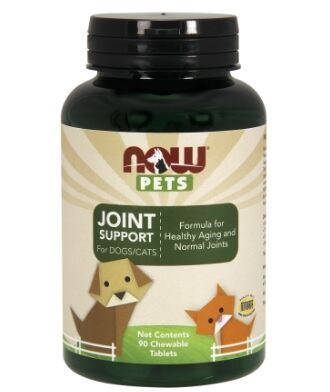“I would put our results up against any industry in any sector anywhere,” said NASC’s Bill Bookout.
To understand NASC’s achievements you have to understand the current regulatory environment for pet or animal supplements.
“When the FDA passed the Dietary Supplement Health and Education Act (DSHEA) in October 1994 it amended the Food, Drug and Cosmetic Act to create a category of food for human dietary supplements. However, Congress did not include language that mentioned animals in that legislation,” explained Bookout. “So, for the pet/animal supplement area, we live in a pre-DSHEA environment.”
The NASC was founded in 2001 with a mission, “to promote the health and well-being of non human food chain animals that are given animal health supplements, by establishing federal and state regulations that are fair, reasonable, responsible and nationally consistent.”
Over the years the association has established an impressive self-regulatory framework, which includes GMP standards, an AER system, a preferred supplier program, labeling claims guidance, continuing education, and more.
“And keep in mind that we’ve done all of this without the government mandating it,” said Bookout. “Based on our results we are a Harvard Business School case study on driving a responsible system, working with regulators to achieve an outlook that is 100% beneficial for everyone.”
The AER system, for example, records both serious and non-serious events. “Even if a dog vomits it may or may not be linked to a product, but it gets recorded,” he said. “Since going live in 2004 we’ve had 20,198 non-serious adverse event reports and 156 serious events out of 19.6 billion administrations of products, which gives us 1.03 adverse events per million administrations [or 0.008 serious adverse events per million administrations].”
Market sizing

The market for supplements for pets is valued at around $1.8 bn, said Bookout, with 50% of that for dogs and cats. Of this 80% is for dogs and 20% for cats. “Cats are a lot smaller, and it’s a lot more difficult to get things into their mouths,” he said. The other 50% of that $1.8bn category is horses. (The wider pet food market is worth about $60bn.)
“People look at the sector as recession proof, but that’s not 100% true,” said Bookout. “It’s definitely a factor on the dogs and cats side where those animals are a member of the family, and that continues to grow. But horses are susceptible to economic downturns. These are expensive animals and we saw a significant effect on the horse side in 2008.”
According to a February 2015 report by Packaged Facts (which captures dogs, cats, birds, small mammals, and reptiles, collectively), joint health supplements are the most commonly purchased condition-specific pet supplement, followed by heart health and skin and coat health, then digestive health/hairball prevention, and omega fatty acid supplements.
“Probiotics, senior formula supplements, and omega fatty acid supplements were more popular with cat owners, while more dog owners than cat owners give their pets joint health supplements,” added the report.
Bookout added: “The overall trends for animal supplements follow many of the trends seen in human supplements, but they’re lagging. So, probiotics, skin and coat products with essential fatty acids and omega-3s. Weight management is a big category that people explore but there’s no magic bullet for weight loss in animals; if you don’t feed them the right diet and give them exercise then they’re going to be overweight.”
Channels

Like the human supplement industry, there are numerous channels to market for animal supplements, including veterinarians, pet specialty stores, the natural food channel on the human food side is, and the mass channel. However, “the channel that is growing the fastest is e-commerce”, said Bookout.
The Packaged Facts report pegged the pet specialty channel as the leader for pet supplement sales, followed by the veterinary channel, with both channels accounting for just under 80% of total pet supplements sales in 2014.
Human supplement companies like NOW Foods with its NOW Pets range, while GNC has a strategic alliance with PetSmart. Mercola also offers a range of pet supplements. Other key manufacturers are Nutri-vet, Garmon Corp with its NaturVet brand, and Nutramax Labs with its market leading Cosequin joint health product, which had 70% of the sales in the category in the mass channel in 2014, according to Packaged Facts. Big pharma companies like Bayer are also active in the sector.
Outlook & challenges
The outlook overall is positive, but one potential challenge on the horizon is the rise in “functional treats”, said Packaged Facts.
“The delivery system is as important as the benefits,” note Bookout. “If an animal doesn’t ingest the product then it’s not going to work.”
So what does the future look like from Bookout’s position? “The outlook for animal supplements is very positive. From a regulatory standpoint there are no threats, and we have an established relationship between our members and the FDA.”

